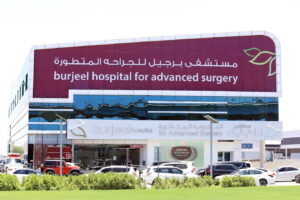How Ratings and Awards Influence Clinic Selection: What Patients Should Know
Reading time: 5 minutes
In recent years, patients have increasingly paid attention not only to reviews and personal recommendations, but also to official performance indicators of medical institutions: their accreditations, professional rankings, industry awards, and international certifications. In the context of a wide variety of options in the field of medical tourism, these benchmarks often help make an informed choice in favor of a particular hospital.
Popular Ratings and Awards
There are numerous forms of recognition for quality and performance in the healthcare sector. Let’s take a closer look at the most prominent ones.
1. International Accreditations
One of the most authoritative and prestigious international accreditations is Joint Commission International (JCI). Founded in 1994 in the state of Illinois, USA, JCI assesses institutions according to standards related to patient safety, quality of care, organizational management, and sustainability. Every three years, JCI revises its standards to ensure continual improvement. For example, the 8th edition, published in 2024, introduced new requirements for environmental sustainability and resource management.
According to JCI, over 1,000 organizations in 70 countries have already received accreditation. The UAE currently leads with 223 accredited institutions. In some countries, there is a national policy requiring mandatory JCI accreditation for healthcare facilities. For example, since 2012, all public medical institutions in Israel must be JCI-accredited, as mandated by the Ministry of Health.
Another international body that accredits hospitals and clinics is TEMOS (Trust Effective Medicine Optimized Services). This is a global standard focused primarily on medical tourism and cross-border healthcare. Unlike JCI, TEMOS evaluates institutions based on their readiness to serve international patients.
TEMOS assessment criteria include:
- Service quality
- Multicultural competence of staff
- Compliance with language standards
- Legal aspects of treating foreign nationals
- Quality control at every stage of the patient journey (from first contact to post-operative care)
The TEMOS accreditation system is officially recognized in 15 countries, including Germany, Turkey, India, China, and South Korea. As of early 2025, more than 45 medical institutions have been accredited by TEMOS.
Top Clinics with Accreditation
-
 Istanbul, Turkey Acibadem Altunizade
Istanbul, Turkey Acibadem Altunizade -
 Jerusalem, Israel Hadassah Medical Center
Jerusalem, Israel Hadassah Medical Center -
 Petah Tikva, Israel Medical Center “Rabin”
Petah Tikva, Israel Medical Center “Rabin” -
 Istanbul, Turkey Medipol Mega University Hospital
Istanbul, Turkey Medipol Mega University Hospital -
 Istanbul, Turkey Istanbul Florence Nightingale Hospital
Istanbul, Turkey Istanbul Florence Nightingale Hospital -
 Dubai, UAE Burjeel Hospital
Dubai, UAE Burjeel Hospital -
 Barcelona, Spain QuironSalud Barcelona Hospital
Barcelona, Spain QuironSalud Barcelona Hospital -
 Barcelona, Spain Medical Center "Teknon"
Barcelona, Spain Medical Center "Teknon" -
 Gebze, Turkey Anadolu Clinic
Gebze, Turkey Anadolu Clinic -
 Madrid, Spain Quiron Salud University Hospital
Madrid, Spain Quiron Salud University Hospital
2. National and International Rankings
Rankings provide comparative evaluations of healthcare institutions based on specific performance metrics and reputation. For patients, rankings offer another important tool to assess clinics in terms of treatment outcomes, technological advancement, medical expertise, and patient satisfaction.
One of the most reputable and widely recognized rankings is published by the German magazine FOCUS. It is based on a comprehensive analysis of German clinics, which includes:
- Surveys of physicians recommending clinics and individual specialists
- Treatment success rates and complication statistics
- Level of technological equipment
- Volume of surgeries performed
- Patient comfort and service quality
- Patient feedback
Since 2012, FOCUS has also published a list of the Top Doctors in Germany. The evaluation takes into account the number of procedures performed in a specific specialty, scientific activity (publications, participation in research), recommendations from colleagues and medical associations, patient reviews, medical qualifications and work experience.
Similar ranking systems exist in other countries. For example:
Newsweek (USA), in collaboration with Statista, publishes the annual World’s Best Hospitals ranking. Clinics are evaluated on clinical performance, expert recommendations, digital transformation, and quality of care. In 2024, more than 2,400 hospitals from 30 countries were included.
In Turkey, there is a national hospital ranking supervised by the Ministry of Health. It is based on the HIMSS Analytics Europe (EMRAM) platform, which assesses the digital maturity of hospitals, the adoption of paperless technologies, and the implementation of electronic clinical decision support systems.
In South Korea, national rankings are published by specialized medical media, such as Health Chosun. Additionally, there is a government-run evaluation system managed by HIRA (Health Insurance Review & Assessment Service). It includes metrics on survival rates, accessibility, patient satisfaction, and care transparency.
Not all rankings are created equal. Patients should consider who compiles the ranking, what criteria are used, and how frequently the data is updated. The most reliable rankings are those based on official statistical data, rather than solely on subjective opinion.
3. Professional Awards and Recognition
Awards highlight the achievements of medical institutions, their innovations, and contributions to the advancement of healthcare.
Among the most prestigious international awards is the IMTJ Medical Travel Awards, established by the International Medical Travel Journal. This award is presented annually to leading medical institutions working with international patients. It includes numerous categories such as:
- Best Customer Service
- Best Quality Initiative
- Best Use of Technology in Medical Tourism
- International Hospital of the Year
- International Dental Clinic of the Year
- International Oncology Center of the Year
- International Cosmetic Surgery Clinic of the Year, and others
In 2016, the Memorial Hospitals Group (Turkey) received the award in the category “Best International Specialist Patient Centre.” In 2020, the Seoul National University Hospital (SNUH) was named “International Hospital of the Year.”
Another significant award is the European Private Hospital Awards, organized by the European Union of Private Hospitals (UEHP) with support from HOPE (European Hospital and Healthcare Federation). The aim of this award is to recognize the contribution of private clinics to innovation, sustainable development, digital transformation, and the improvement of care quality. Winners are selected in several categories, including Best Clinical Initiative, Best Patient Experience, Healthcare Innovation, and Digital Transformation.
At the national level, many countries also have professional healthcare awards. For example, in the United Kingdom, the LaingBuisson Awards honor excellence in private healthcare and social care. In Germany, the Health Media Award recognizes contributions to healthcare communication, education, and innovation.
The awarding process is always accompanied by expert evaluation and a rigorous selection process. Jury panels typically include industry professionals, representatives of patient organizations, analysts, and international experts. This ensures the objectivity and credibility of the recognition.
How Rankings and Accreditations Influence the Quality of Diagnosis and Treatment
Being accredited or included in a prestigious ranking is first and foremost a marker of a systematic approach to healthcare quality. Institutions aiming for international recognition must not only comply with high standards but continuously improve internal processes. This applies to both clinical aspects (diagnostic accuracy, surgical safety, infection control) and organizational ones, such as patient flow, ethics of interaction, documentation, and staff training.
Many accreditation bodies (such as JCI) monitor hospitals not only at the time of application but also during follow-up assessments in subsequent years. Thus, the institution is required to maintain a consistent level of quality, rather than demonstrating compliance once. In follow-up evaluations, the emphasis is often placed on real outcomes, such as:
- Reduced complication rates
- Improved patient satisfaction
- Implementation of new safety protocols
Rankings also foster internal competition and encourage hospitals to invest in technology, physician education, and international partnerships. This is especially evident in countries with a well-developed medical tourism sector, where high positions in global rankings directly affect the inflow of international patients.
However, it is important to note that not all rankings are equally objective. Some may rely primarily on marketing indicators (such as online reputation, website design, media visibility) rather than on clinical performance. Therefore, what matters for patients is not simply whether an institution has won an award, but who issued it, based on what criteria, and how closely it reflects actual care quality.
The Role of Awards and Rankings in Choosing a Clinic
Awards, rankings, and accreditations undoubtedly play an important role — especially when it comes to receiving treatment abroad, where the patient may not have the opportunity to visit the facility in advance. These markers help create a remote understanding of a clinic’s infrastructure, medical technology, patient safety, and staff qualifications.
However, patients should not rely solely on rankings or prominent awards. Most such evaluations are based on average metrics and may not reflect the specific needs of each clinical case. For example, a clinic may have excellent oncology results but limited experience in cardiology or neurosurgery. Moreover, some rankings are designed for domestic audiences and may not consider the convenience or safety for foreign patients.
That’s why it is essential to evaluate a comprehensive set of factors, including:
- Medical specialization and clinical focus
- Verified patient reviews
- Availability of Russian-speaking support
- Transparent pricing and treatment packages
- Quality of communication with international departments
Our company helps patients navigate the global healthcare landscape. We work exclusively with trusted institutions and experienced physicians who are matched to the patient’s diagnosis, needs, and personal situation. We know where specific conditions are treated best and select the optimal treatment plan based on all relevant factors — from budget and timing to visa requirements and concierge support.
Hospitality Medservice is your reliable partner in finding the best clinic worldwide. On our website, you will find only reputable medical institutions equipped with the latest technologies and treatment protocols. You can explore the level of care at each clinic, medical team credentials, treatment costs and contact us for assistance with:
- Treatment travel arrangements
- In-person consultations
- Remote second opinions and video consultations
Leave a request on our website, and one of our medical coordinators will contact you shortly.
Text reviewed
Material verified; relevance confirmed by: Marianna Sharypova, certified physician, Medical Director of HMS, with 20 years of experience in the field of medical tourism.
Author: Nina Afrosina, MD








